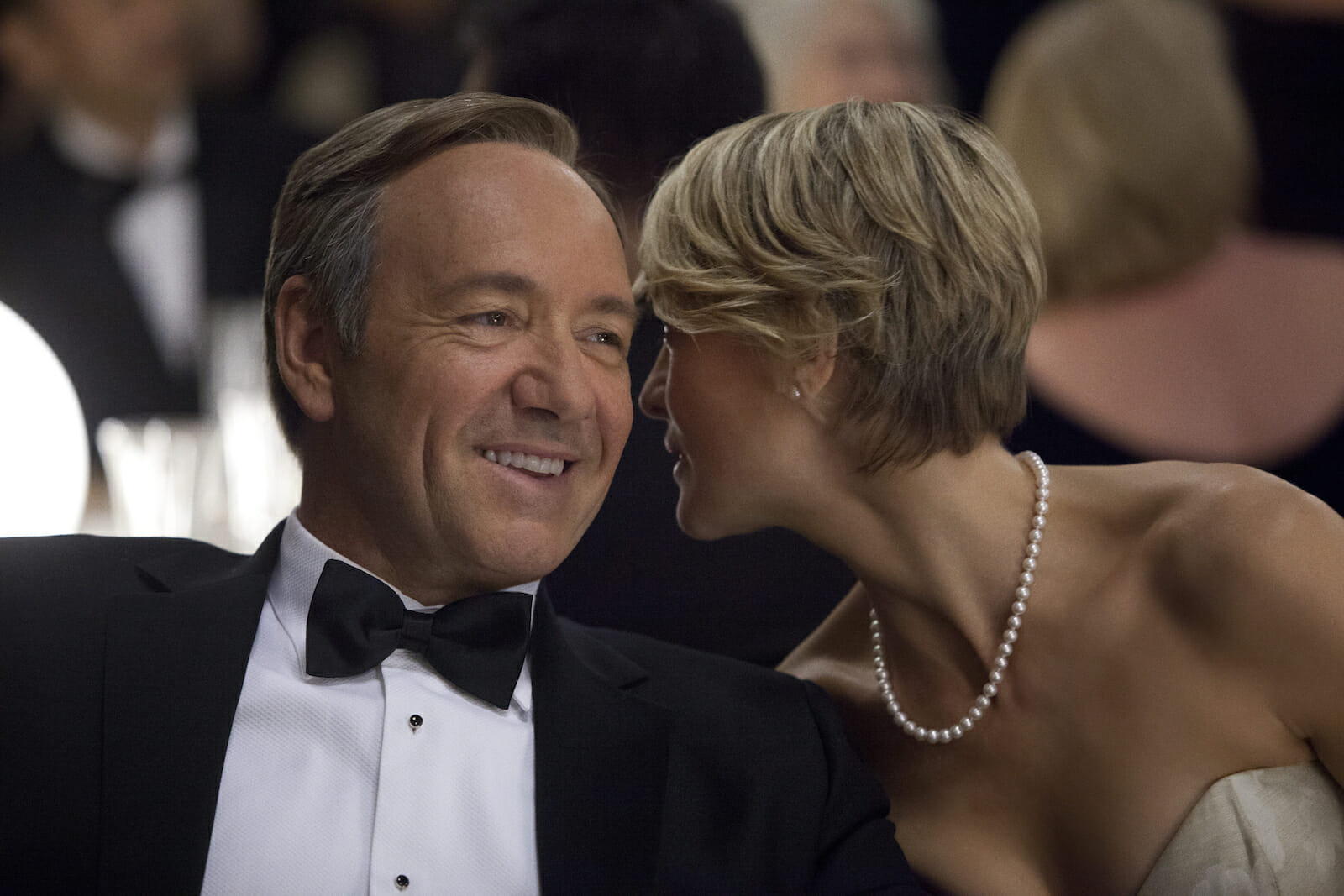
Politics
‘House of Cards’: A Victory for Neoliberal Institutionalism
At first glance, Netflix’s original series, House of Cards, appears the ultimate expression of Machiavellian realism. The protagonist is Congressman Frank Underwood, a cold and calculating Majority Whip who navigates a world filled with unitary, self-interested actors obsessed with self-advancement. Underwood, in particular, glorifies power. When asked by the fictional journalist (and, notably, extramarital lover) Zoe Barnes about what he thinks of while she’s up against the wall, his answer is immediate: “…everything in life is about sex, except sex. Sex is about power.”
And indeed, Underwood’s interest in power is relative, both literally and figuratively. While standing near the President during inauguration, he equates power with real estate; “It’s all about location, location, location; the closer you are to the source, the higher your property value.” The realpolitik Congressman is not, however, a sovereign state.
Rather, he is the sovereign man who, as Hannah Arendt notes in her interpretation of Hobbes’ Leviathan, “feels himself menaced by his fellow-men.” This feeling of insecurity vis-à-vis one another in an anarchic world is, for Hobbes, why we need the state.
More specifically, it is why we need institutions; one accepts the self-limiting boundaries of the political institutions in which one operates in return for an equitable relationship between the state and all others.
This is, arguably, the central tenant of the neoliberal institutionalism paradigm in international relations: self-binding norms and institutions can intertwine the interests of unitary actors, leading them to prioritize absolute over relative gains. Underwood, however, as the human personification of the most pessimistic strands of realist thought, is decidedly not interested in absolute gains. Nor is he concerned with long-term stability. He wants power—maximum power—and he wants it fast. And though the institutions in which he operates limit his capabilities, those limits are not strong enough to alter his behavior. Even when provided with the opportunity to attain his most immediate goal—the Vice Presidential nomination—he rejects the offer because it entails restraints. With a terse, indefatigable tone he proclaims, “I will not bind myself…I don’t shackle myself to people I don’t know.”
Thus Underwood is, specifically, the realist objection to what it considers the idealistic claims of neoliberal institutionalism. Rather than acquiescing to the system’s limits, he bends those limits to his will, employing its boundaries to advance his pursuit of relative power in and of itself. But if the self-binding limits of institutions are elastic, then the farther one bends, the greater the rebound. The very boundaries Underwood pushes, I argue, will eventually return the favor, thus rendering House of Cards, paradoxically, an expression of optimism about the sustainability of self-binding political institutions. This can be illustrated most clearly by detailing the three self-binding institutions in which he operates: the constitutional, the party-specific, and the normative.

Most obviously, Underwood is a member of the US Congress. Though his position as majority whip affords him extraordinary influence and capability, he remains theoretically limited by the legal and procedural rules of federal legislative politics. This is what John Ikenberry calls a ‘constitutional political order.’ Such orders have three essential characteristics: the rules and institutions set limits on power; such rules are not easily altered; and all participating actors agree upon those rules.
Underwood’s constitutional institution is particularly strong given that it incorporates legal limits guaranteed by capital punishment. And, indeed, Underwood is forced to accept those institutions’ limits; he has to, for example, acquire a certain number of votes to create legislation. This is a truism, and yet it remains integral to note that his capabilities are limited by the rules of the game. Or are they? At numerous points in the series, Underwood blackmails a Congressman by hiring a hooker to break his sobriety and sleep with him. This is clearly a violation of the constitutional institution’s rules, and yet capital punishment is avoided because Underwood guarantees the Chief of Police funding for his upcoming mayoral campaign. In doing so he has altered not only the distribution of power, but also the very rules by which such power is created and employed. He has bent the walls of his arena; he has changed the rules of the game.
His political party, too, is a self-binding institution, albeit a weaker one. Though the Democratic Party features a hierarchical system and internal rules, those limits are only guaranteed by law in so far as they interact with more general regulations concerning campaign finance, political advertising, etc. Thus the rules of the party are more malleable, and Underwood sculpts accordingly. He releases, for example, a leak to tank the President’s initial nomination for Secretary of State. He helps the Chief of Staff’s son gain admission to Stanford in order to curry favor. He manipulates members of the same party, regardless of, and often in opposition to the absolute interests of the party itself.
Finally, Underwood operates within a normative institution, or, the norms of appropriate behavior constructed by society. This is the weakest of the three institutions, in that it is backed by no direct punishment (although the indirect consequences of breaking such norms can be very serious indeed). Most specifically, the married Congressman Underwood is decidedly not expected to sleep with a much younger member of the press. There is nothing illegal about infidelity, but the relationship breaks a number of norms concerning the institution of marriage, the separation of government and press, and the ethical boundaries of their relative employers, US Congress, and the fictional Washington Herald. Yet here, too, Underwood bends the rules imposed upon him by the institution, using Barnes to plant news stories in support of his power accumulation.
His behavior in all three worlds supports the realist notion that self-binding institutions are merely conduits for the self-interests of power-hungry actors. And yet, the rubber band is starting to rebound. His connection to Peter Russo’s infidelity is becoming ever more apparent to, ironically, Zoe Barnes, and his Vice Presidential nomination is dependent upon the victory of his fellow Democrat in the election for Pennsylvania’s Governorship. The continuation of the former is eminent; the latter is probable but not yet guaranteed. Together, both plot points suggest that Underwood’s induced shock to the institutions in which he operates will reverberate and bounce back to undermine his plans.
If, as I predict, House of Cards proceeds in the spirit of a traditional Shakespearean tragedy, Underwood’s Ozymandias-like clutch at power will prove ultimately self-destructive. This would be, I posit, a victory for neoliberal institutionalism. But if, instead, the opposite happens, and Underwood attains the Presidency and ends the series in victory, the message would remain essentially the same. It would resemble Nero usurping the Roman Republic, transforming the democratic, constitutional institution into an authoritarian shell of its former self. Such a result would not imply a weakness in the basic assumptions of the neoliberal paradigm, but rather a lamentation that the institutions in place were not sufficiently strong, binding, and autonomous.
